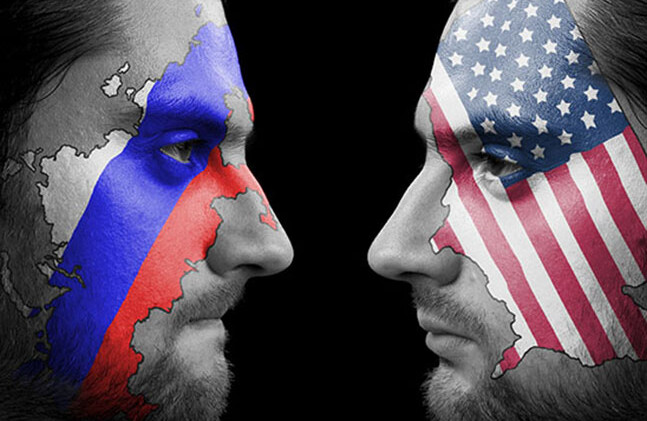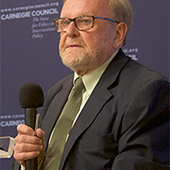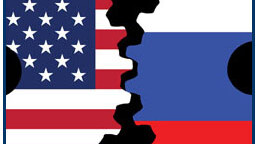In the wake of the April 15 Boston Marathon bombings, we have seen a flurry of reports in both U.S. and Russian media on the life history of the Tsarnaev brothers, two young men of Chechen origin, and on a surveillance trail on one of them that may or may not have been shared by U.S. and Russian intelligence services. Unfortunately, predictably, a tone of mutual recrimination and buck-passing permeates the reactions of both parties—the Russian Federal Security Bureau (FSB) on the one hand and Central Intelligence Agency (CIA) and Federal Bureau of Investigation (FBI) on the other.
What does seem indisputable is that in early 2011, the FSB alerted its American counterpart intelligence services to what it saw as suspicious activity on the part of the older of the brothers, Tamerlan Tsarnaev. In March 2011, according to an April 25 New York Times article, the FSB followed up with a request via the FBI's office in the U.S. Embassy in Moscow to look into the activities of Tamerlan, who had moved to the United States with his family in 2002. According to the Times article, the "one-page request said Mr. Tsarnaev 'had changed drastically since 2010' and was preparing to travel to a part of Russia 'to join unspecified underground groups.'" The subsequent review by counterterrorism agents in the FBI's field office in Boston included examination of suspected terrorist databases and interviews with Tsarnaev and his family and concluded that there was nothing to suggest any connections of the youth or his family to extremists. However, Tsarnaev's name was added to a special watch list, the Treasury Enforcement Communications System, which is set up to send an electronic message to customs officials whenever a person of interest, such as Tsarnaev, enters or leaves the country—as he indeed did for a six-month period in 2012, to the southern Russian, predominantly Muslim, North Caucasus region of Dagestan.
This much we know. But what has ensued as a result of the Boston atrocity is a series of "he said, she said" sniping between Washington and Moscow. According to the FBI, repeated requests were made to the FSB for additional information; this was not forthcoming. From the Russian side, there is the claim that while specifics of the suspicions focusing on Tamerlan Tsarnaev were somewhat vague, there were not one but "multiple" alerts to U.S. intelligence services. In a closed briefing to the Senate Intelligence Committee on April 23, members learned that Russia warned the United States about Tsarnaev in "multiple contacts," including "at least one since October 2011," according to Senator Richard Burr [R-NC] speaking to reporters after the session.
The Boston events and the matter of (non) intelligence sharing have, in the short term, sharpened the severity of the tone of the blame game.
On the one hand, American complaints about lack of specificity from Moscow's warnings seem to be borne out by a report from April 22 in the English-language Moscow Times, which quotes a Russian "intelligence expert," Andrei Soldatov, thus:
"The FSB rarely provides information. Tipping off the FBI was their last priority. Their first priority was, 'Can we use counterterrorism cooperation channels to get information from the Americans?' It's a different logic, and it's very typical of the FSB."
On the other, the Russian side makes the quite reasonable point that the burden of investigation of the Tsarnaev brothers had to fall on the United States, since the suspects had not lived in Russia for many years. In addition, there seems to have been a puzzling oversight in the surveillance trail in that, upon his return to the United States in July 2012 from Dagestan, Tamerlan Tsarnaev, according to the Moscow Times article, reportedly created a YouTube account and posted videos sympathetic to radical Islam, including a clip of a song by a Chechen radical called "I devote my life to jihad." Perhaps, had the FBI alert on Tamerlan Tsarnaev not expired before he returned from Russia, as reported by the Los Angeles Times on April 23, the FBI would have been alerted to such activity.
In an article titled "U.S., Russian spies' 'trust deficit' may have clouded Boston case," an April 25 report from Reuters takes up the matter of an inter-agency, Russian-American dispute. Two quotes here seem sadly apposite:
"U.S. officials said they consider counterterrorism information emanating from Moscow's bitter conflict with Islamic militants in Chechnya and other parts of the volatile north Caucasus especially suspect."
And
"'The Russians typically file spurious requests on people that are not really terrorists, and that's why somebody might have discounted it,' a senior State Department official said: 'One wouldn't automatically take what the Russians say at face value. You'd always have to look for a second corroboration."
Even more gratuitously provocative was the rhetorical question in an April 29 Time magazine piece, "Four Enduring Mysteries about the Boston Bombings," by Michael Crowley: "How Much Does Vladimir Putin Know?"
There is a harsh old Scottish joke, the punchline of which is the Presbyterian Lord looking down at the Hell-condemned sinners who have cried out for mercy, "Oh Lord, we did not know," and responding "Well, you know now!" What we should know now, it seems obvious, is that casting the net widely to snare the one prized catch seems a more sensible and self-protective approach than doubting Russian motives for making a request. We also know that terrorism is a globalized industry, and that North Caucasus terrorist activity has manifest itself not only in a series of attacks on Russia, but in the form of combatants in Afghanistan, Iraq and elsewhere—where the mark of the United States is indelibly obvious.
This brings us, perhaps, to the longer-term better news. Post-Boston, there has been an uptick in the conversation—and, one hopes, in the spirit of cooperation between the counterterrorism and intelligence operations of the United States and Russia as a result of direct communications between Presidents Putin and Obama. In a widely reported Marathon television call-in show on April 25, Mr. Putin—even while criticizing the United States Congress for "imperial behavior" in passing human rights legislation targeted at Russia—made an impassioned appeal for bilateral strategic action against terrorism directed at both countries.
A postscript: in June 1999 I visited the Russian Ministry of Defense, for the purpose of discussing the future of a program at Harvard University, sponsored by Carnegie Corporation of New York that brought together members of the Russian General military staff with Pentagon counterparts for a discussion of a range of shared issues, including terrorism. It was at a time when the U.S.-led bombing of Yugoslavia was in full swing. I was received with great and solemn ceremony by the gruff number two or three (depending on the day) at the Ministry, General Valery Manilov, who proceeded to lecture me on the hostilities against Russia's ally, and to say that he had as a result canceled all other meetings with Westerners scheduled for that month—underscoring, as he put it, the importance of the Harvard generals program. At the end of our meeting, he mentioned that a State Department delegation had visited the Ministry recently, and in the course of the discussions the Russian hosts had raised the matter of North Korea. Russia, the account went, was very nervous about the North Koreans, with whom they share a small border, and had a corpus of intelligence that they thought would be mutually advantageous to share. The U.S. response, according to Manilov, was that "we have the intelligence we need and we know what we are going to do."
Most obviously, there is no way of knowing the accuracy of the Russian version of this conversation, or if indeed it took place. But I recalled it when thinking of what seems to be almost a zero-sum game in the matter of intelligence-sharing, and in the context of Boston. To get beyond that would surely be the most fitting tribute to three people killed and scores injured and maimed.


